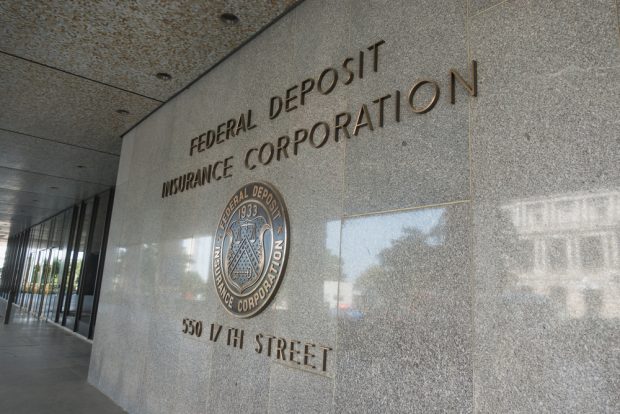 Federal Deposit Insurance Corp.'s headquarters in Washington. Photo: Diego M. Radzinschi/ALM
Federal Deposit Insurance Corp.'s headquarters in Washington. Photo: Diego M. Radzinschi/ALM
Federal regulators have issued a joint statement clarifying expectations for banking organizations that offer crypto-asset safekeeping services, a move with implications for credit unions navigating the evolving digital asset landscape.
The Office of the Comptroller of the Currency, Federal Reserve and FDIC outlined risk management standards for institutions that hold digital assets on behalf of customers, whether in a fiduciary or non-fiduciary role. While credit unions are not directly regulated by these agencies, the guidance provides critical insights for those eyeing crypto custody as a service.
Recommended For You
Among the key points: Crypto safekeeping involves managing private cryptographic keys and related sensitive data, functions that, if compromised, can lead to asset loss and institutional liability. The agencies stressed that offering such services demands robust cybersecurity, internal controls and staff expertise.
Of particular relevance to credit unions is the emphasis on tailoring risk frameworks to specific crypto-assets. The statement advised financial institutions to assess each asset’s technology, ledger compatibility and compliance risks before offering safekeeping.
In light of evolving regulatory obligations, such as anti-money laundering and Office of Foreign Assets Control requirements, credit unions must consider whether their systems can meet these complex standards. The agencies also flagged potential challenges in using third-party vendors and sub-custodians, underscoring the need for due diligence and ongoing oversight.
While the guidance does not establish new rules, it sends a clear message: Crypto safekeeping is a high-stakes, high-complexity business. Credit unions looking to expand into digital asset services must weigh the risks, build adequate safeguards and ensure compliance with all applicable laws and best practices.
America’s Credit Unions and the Defense Credit Union Council have said they support current legislation being discussed to create a regulatory framework for digital assets, which gives credit unions the ability to offer such digital asset products and services to members.
© Touchpoint Markets, All Rights Reserved. Request academic re-use from www.copyright.com. All other uses, submit a request to [email protected]. For more inforrmation visit Asset & Logo Licensing.







